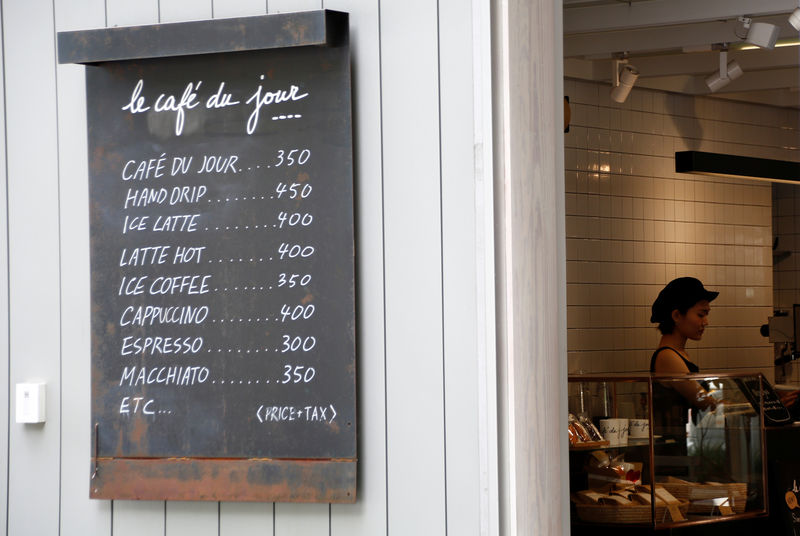TOKYO (Reuters) - Japanese services sector activity expanded in February as new business grew at the fastest pace in almost six years, a business survey showed on Tuesday, a sign that domestic demand remains in good health in early 2019.
The Markit/Nikkei Japan Services Purchasing Managers' Index (PMI) rose to a seasonally adjusted 52.3 in February from 51.6 in January.
The index stayed above the 50 threshold that separates contraction from expansion for the 29th month.
"Japan's service sector remained resilient in February, contrasting to the struggles the country's manufacturers have endured so far this quarter," said Joe Hayes, economist at IHS Markit, which compiles the survey.
"Service providers will play an important role in the coming months if Japan's economy is to avoid slipping into a downturn."
The index measuring new business increased to 54.5 from 52.1 in January, reaching its highest since May 2013 due to stronger sales, new product launches and an increase in demand from overseas, the survey showed.
The composite PMI, which includes both manufacturing and services, eased slightly to 50.7 in February from 50.9 in January, because factory activity last month contracted at the fastest pace in two-and-a-half years due to the U.S.-China trade war.
In the past eight months, the United States has imposed punitive tariffs on $250 billion worth of imports from China, while Beijing has hit back with tariffs on $110 billion worth of U.S. goods.
This has caused Japan's exports and factory output to fall because it ships a lot of electronic parts and heavy machinery to manufacturers in China.
The United States and China appear close to a deal that would roll back U.S. tariffs on at least $200 billion worth of Chinese goods, a source briefed on negotiations told Reuters.

If the United States and China can end their trade war, this would gradually lift the burden on Japan's manufacturing sector, economists say.